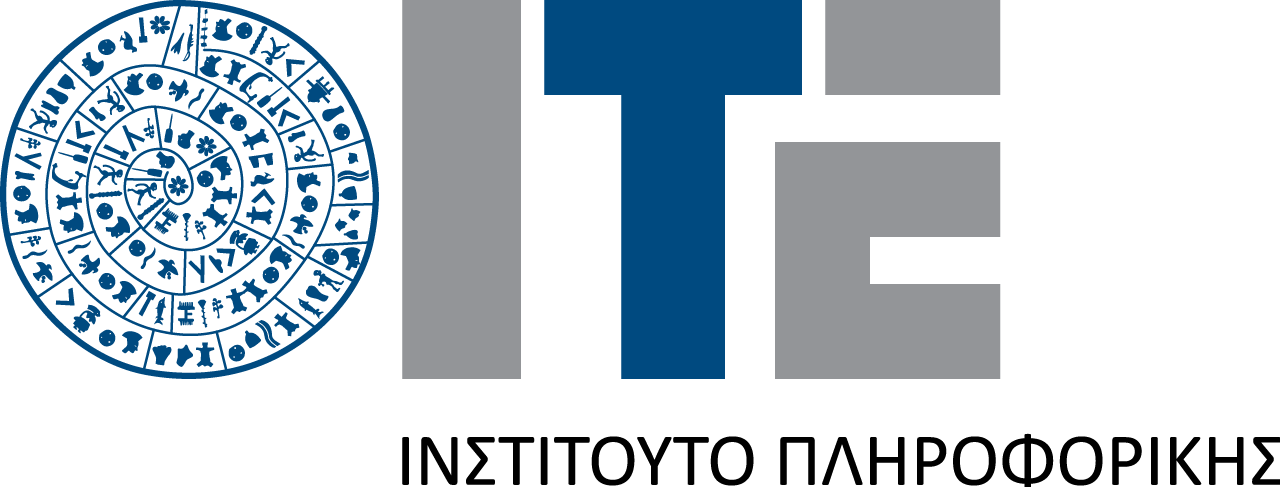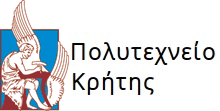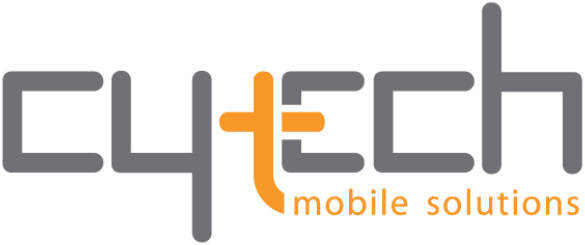Team
Strategic consortium, equipped with long experience in research and technical and commercial exploitation of medical products.
The strategic partnership formed, in conjunction with the foreseen low cost of the proposed solution, ensures the high quality and the successful market penetration of the product.
- FORTH, as a world-class research organization, in cooperation with the Technical University of Crete, have the know-how and the working experience in the field of signal/image analysis and the development of integrated biomedical products including successful decision support applications.
- The Medical School of the University of Crete, having the required medical knowledge, can guide, in terms of clinical needs, the system implementation, as well as the evaluation of the final product.
- GNOSIS, will undertake the development of the innovative services for the identification of potentially pathological conditions, whereas
- CYTECH, will be responsible for the development of the ‘smart’ notification application and the overall promotion of the final product.
Η επιλογή κατάλληλων μη-επεμβατικών αισθητήρων εξασφαλίζει την υψηλή ευαισθησία του συστήματος, ενώ διασφαλίζει τον απρόσκοπτο βρεφικό ύπνο, απαραίτητο για τη σωστή ανάπτυξη του παιδιού.
Partners

website: forth.gr
FORTH

The Foundation for Research and Technology-Hellas (FORTH), established in 1983, is one of the largest research centers in Greece with well organized facilities, highly qualified personnel and a reputation as a top-level research foundation worldwide. The research and technological directions of FORTH focus on areas of major scientific, social, and economic interest. The Foundation, with headquarters in Heraklion, includes six Research Institutes in different parts of the country.
The Institute of Computer Science (ICS-FORTH) will participate in this consortium and it is located in Heraklion, Crete. The Institute of Computer Science has had a relatively long history and recognised tradition, since its establishment in 1983, in conducting basic and applied research, developing applications and products, providing services, and playing a leading role in Greece and internationally, in the fields of Information and Communication Technologies. Activities of ICS cover important research and development areas, encompassing new perspectives, emerging fields of research and technological challenges worldwide. In its continuing efforts to exploit its research activities and results, the Institute contributes significantly to the diffusion of modern Information and Communications Technologies in the public and private sectors. Thus, ICS acts as a catalyst for the development of the Information and Communication Technologies sector in Greece, and the creation of favourable conditions for the emergence of an Information Society acceptable by all citizens.
The group that will be involved with the implementation of this project is part of the Computational Bio-Medicine Laboratory (CBML, https://www.ics.forth.gr/cbml), whose mission is to develop novel ICT technologies in the wider context of personalized, predictive and preventive medicine. Several EC and national grants as well as a number of strategic clinical collaborations have ensured that the research output is driven from the actual clinical requirements and translated to the clinical setting. Research within CBML focuses on the development of innovative computational algorithms and methods, in the fields of medical informatics, bioinformatics, eHealth, biosignal analysis and computational medicine.

website: www.tuc.gr
Technical University of Crete

The Technical University of Crete, one of the most important research institutes in Crete, is highly active in conducting basic and applied research and cooperates with international education and research institutes in the fields of signal and image processing, telecommunications infrastructures, biomedical applications, surveillance and monitoring applications, data analysis using modern stochastic techniques and machine learning. The research Committee of TUC has successfully managed a large number of research and development projects, which are funded by the European Union, the General Secretariat for Research and Technology, the Ministry of Education, the Region of Crete, local administration organizations and many private businesses.
The Digital Image and Signal Processing Laboratory (DISPLAY) of the Technical University of Crete was established in 1998 and has managed ever since a large number of R&D projects. The research team of this project, headed by professor Michalis Zervakis has engaged in many national and international projects and specializes in biomedicine applications of signal and image processing, aiming for the detailed description, reconstruction, segmentation, compression and interaction of biological factors in the evolution of phenomena. In particular, biomedical applications include the use of pattern recognition in the detection of functional problems in medical images and signals, as well as bioinformatics applications, concerning the study of gene expression with the aim of decoding underlying diseases mechanisms for the early diagnosis, prognosis and prediction.

website: www.med.uoc.gr
Medical School of the University of Crete

The Division of Mother and Child Health, Pediatrics Laboratory, of the Medical School of the University of Crete forms one of the ten divisions of the Medical School and its main scientific interest is the health of child and mother. More specifically and among other fields, it focuses on the study of paroxysmal phenomena, such as childhood epilepsy, which is the most common chronic childhood diseases and accounts for 1% of the general population. In absolute numbers, childhood epilepsy affects negatively various aspects of everyday human activity for a large number of children and their families. The research interests of the laboratory are focused on the collection and processing of epidemiological, clinical, imaging, biological/genetic, electroencephalographic and other biodata from children suffering from epilepsy in order to study the epidemiology of the disease in Crete, identify biomarkers that would contribute to diagnosis, classification, prevention and prediction of seizures, as well as personalize the patients treatment and prognosis. Accomplishing the above objectives can improve the quality of healthcare for these young patients and their families and it will contribute to the effective training of the researchers and medical professionals that are involved.
The Division of Pathology, Research Laboratory of Pulmonology at the Medical School of the University of Crete is one of the ten divisions of the Medical School. The research Sleep and Functional testing of Lungs Laboratory and the Molecular and Cellular Pulmonology Laboratory are parts of the Research Laboratory of Pulmonology. The Sleep Laboratory has been licensed by KESY since 2004 and has been evaluated by the Hellenic Pulmonary Society, while it is the only laboratory in Greece which is included, since 2010, in the European Sleep Research Laboratories (www.esrs.eu). The research interests of the aforementioned laboratories include: genetics and pathogenicity of chronic obstructive lung diseases (chronic obstructive pulmonary disease, bronchial asthma), pathogenicity of diffuse interstitial lung diseases, pathogenicity and diagnosis of pleural effusions, genetics, pathogenicity and treatment of sleep disorders with emphasis on cardiovascular risk, and pathogenicity and treatment of residual sleepiness in sleep disorders.

website: www.gnosisda.gr
Gnosis
Gnosis Data Analysis (Gnosis DA) is involved in data analysis using statistical modeling, machine learning, data mining, pattern recognition, artificial intelligence and big data techniques. The company conducts research relevant to data analysis and development of automated analysis tools. Additionally, the company offers a complete spectrum of data-analysis related consulting services, as well as training seminars in advanced data analysis techniques.
The company’s next product, Just Add Data Bio (JADBio), is currently under development and it will be offered in the cloud computing as Software as a Service (SaaS) for the automatic analysis of biomedical data.
In addition to services and products, the company conducts research in data analysis algorithms in order to provide its products with comparative advantages. Some of the algorithms and research applications have been published in the scientific press. Specifically, in 2017 the prestigious journal Scientific Reports of the Nature group accepted the first scientific publication concerning the application of JADBio on biological data. In this work JADBio provides a classifier able to predict secreted protein from information from their mature regions.

website: www.cytechmobile.com
Cytech
Cytech has been active in the Telecoms and Mobile Marketing Software market, in Greece and abroad, since 2001. The aim of the company since day one has been to develop and deliver pioneering services of the highest quality, in order to fulfill its customers’ needs. Cytech develops mobile solutions that translate business needs into technology. The company provides its clients with the expertise in the telecom sector, to assist in creating and exploiting new business opportunities. More specifically, Cytech has developed in-house solutions for mobile messaging, mobile marketing and mobile payments, which has enabled the company to have clients and partners in over 10 countries around the world, from Norway to Thailand and from S.Arabia to Colombia.
Cytech’s activities focus on the following fields:
- Development of high-end software platforms
- Development of software systems and tools
- Mobile applications development
- Design, support and integration of software systems.
Cytech constantly seeks to improve software development processes so that it can present new features into the market and integrate the requirements of its customers directly into new releases. To this end, methodologies, such as Agile Software Development, have been adopted and applied to the development of the products and to customer support. This results in the close connection of the company with the customers and, thus, the development of software that meets their real needs.

